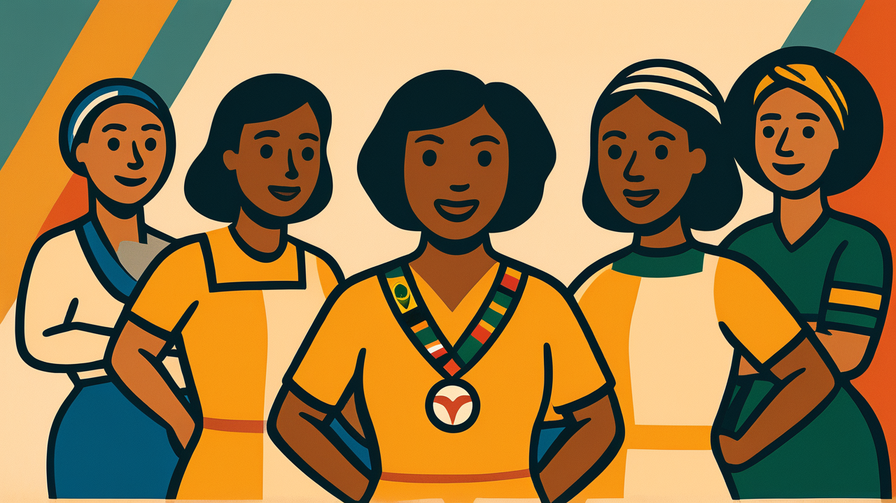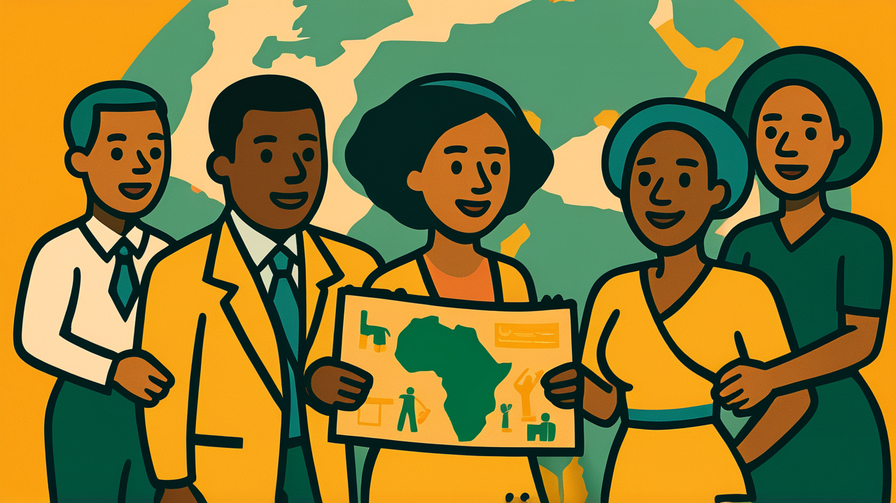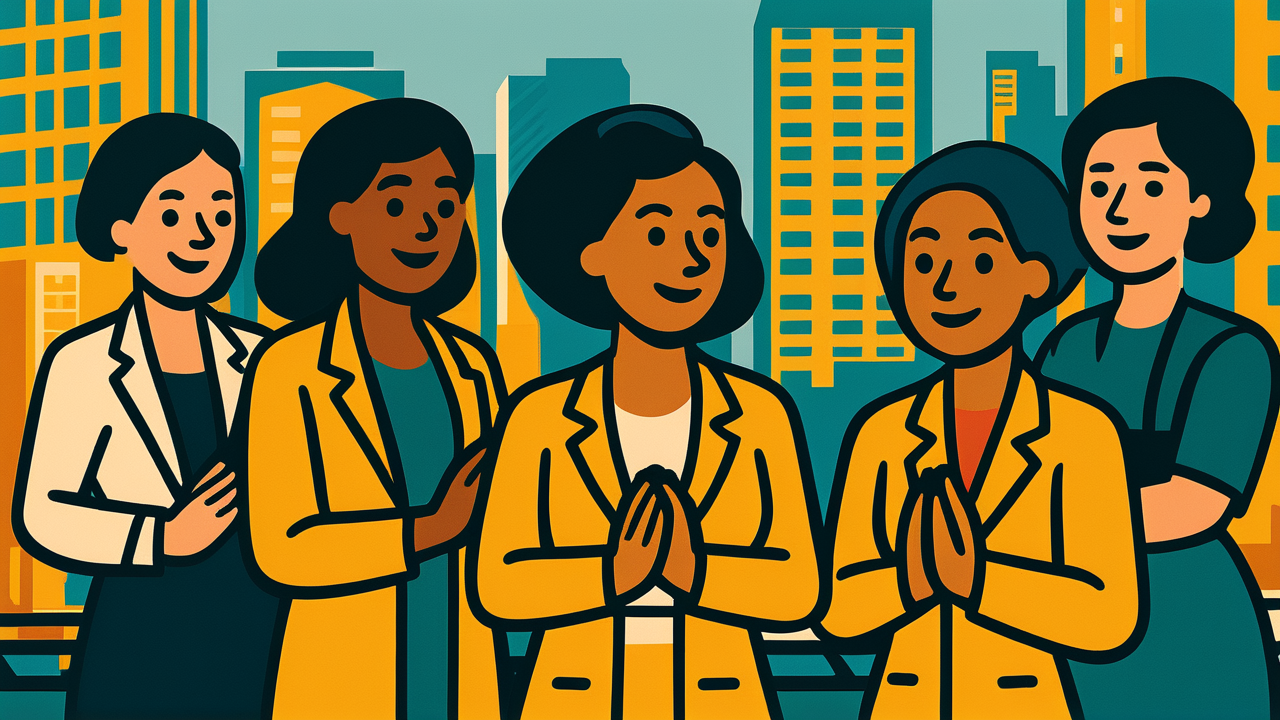[Disclaimer] This article is reconstructed based on information from external sources. Please verify the original source before referring to this content.
News Summary
The following content was published online. A translated summary is presented below. See the source for details.
The World Economic Forum’s latest Global Gender Gap Report reveals significant variations in gender equality progress across African countries. The report measures gender gaps in four key areas: economic participation and opportunity, educational attainment, health and survival, and political empowerment. Rwanda continues to lead not just Africa but ranks among the top 10 globally, achieving this through policies that mandate 30% female representation in decision-making positions. Namibia, South Africa, and Burundi also rank highly on the continent, demonstrating that gender equality isn’t necessarily tied to economic wealth. The report shows that African countries have made notable progress in educational attainment, with many achieving near-parity in primary and secondary education. However, significant gaps remain in economic participation, with women earning on average 68% of what men earn across the continent. Political empowerment shows the most dramatic variations, with some countries like Rwanda having over 60% female parliamentary representation while others have less than 10%. Health and survival scores are generally high across Africa, though maternal mortality remains a concern. The report emphasizes that countries investing in women’s education and removing legal barriers to female workforce participation see faster economic growth, suggesting gender equality isn’t just a human rights issue but an economic imperative.
Source: Global Voices
Our Commentary
Background and Context

When you think of countries leading in gender equality, which ones come to mind? Sweden? Norway? You might be surprised to learn that Rwanda ranks higher than the United States, United Kingdom, and many European nations in gender equality. The World Economic Forum’s Gender Gap Report is like a global report card that measures how close countries are to achieving equality between men and women.
This isn’t about women being “better” than men or vice versa—it’s about ensuring everyone has equal opportunities to succeed, regardless of gender. The report looks at things like: Can girls go to school as easily as boys? Do women get paid fairly for their work? Are women healthy and safe? Can women become leaders in government?
Expert Analysis
The Gender Gap Report measures four main areas, each telling us something different about equality:
1. Economic Participation: This looks at whether women can get jobs, earn fair wages, and become managers or CEOs. African women earn only 68% of what men earn on average—imagine doing the same homework but getting a lower grade just because of your gender!
2. Educational Attainment: Good news here! Many African countries have achieved near-equal enrollment in primary and secondary schools. When girls get educated, entire communities benefit—educated mothers are more likely to send their own children to school, creating a positive cycle.
3. Health and Survival: This measures life expectancy and health outcomes. Most African countries score well here, though challenges like maternal mortality (mothers dying in childbirth) remain serious concerns.
4. Political Empowerment: This is where we see the biggest differences. Rwanda has over 60% women in parliament (that’s more than any other country in the world!), while some countries have less than 10%.
Additional Data and Fact Reinforcement
Top African performers and what they’re doing right:
Rwanda (#6 globally):
• 61% women in parliament (world’s highest!)
• Constitutional requirement for 30% female representation
• Strong focus on girls’ education after 1994 genocide
Namibia (#8 globally):
• High female literacy rates
• Strong legal frameworks protecting women’s rights
• Growing number of women in business leadership
Key factors that help close gender gaps:
• Laws guaranteeing equal rights
• Access to education for girls
• Maternal healthcare services
• Cultural shifts accepting women leaders
• Economic policies supporting working mothers
Related News
This report comes as African countries are experiencing rapid social change. Young Africans are increasingly rejecting traditional gender roles, with movements like #MeToo gaining traction across the continent. Social media has given women platforms to share experiences and organize for change.
The economic argument for gender equality is becoming clearer. Studies show that countries with greater gender equality have stronger economies. McKinsey estimates that Africa could add $316 billion to its GDP by 2025 just by matching the gender equality progress of the best-performing country in the region. This isn’t just about fairness—it’s about prosperity for everyone.
Summary

The World Economic Forum’s Gender Gap Report reveals that some African countries are unexpected global leaders in gender equality, while others still face significant challenges. Rwanda’s remarkable achievement shows that political will and smart policies can create rapid change, regardless of a country’s wealth.
For students, these rankings offer important lessons. First, progress is possible—countries can improve dramatically with the right policies and cultural shifts. Second, gender equality benefits everyone, not just women. When half the population can’t reach their full potential, the whole society suffers. Whether you’re in Africa or anywhere else in the world, you can be part of the solution by challenging stereotypes, supporting equal opportunities, and recognizing that diversity makes communities stronger. The future belongs to societies that unleash the potential of all their people, regardless of gender.
Public Reaction
Young Africans, especially women, celebrate their countries’ progress on social media with hashtags like #AfricanWomenLead. Some men worry about “reverse discrimination,” though experts clarify that equality doesn’t mean taking opportunities from men. Business leaders increasingly recognize that diverse teams perform better. Rural communities sometimes resist change, citing tradition, while urban areas tend to embrace gender equality more readily. International observers express surprise at Rwanda’s high ranking, leading to discussions about different paths to equality.
Frequently Asked Questions
Q: How can Rwanda rank so high when it’s not a wealthy country?
A: Gender equality isn’t about wealth—it’s about policies and attitudes. Rwanda made conscious decisions to include women in rebuilding after the genocide, proving that political will matters more than GDP.
Q: Does gender equality mean women and men must do everything exactly the same?
A: No, it means everyone should have equal opportunities to choose their path. If a woman wants to be an engineer or a man wants to be a nurse, they should face no barriers based on gender.
Q: What can students do to promote gender equality?
A: Challenge stereotypes when you see them, support classmates regardless of gender, and speak up against discrimination. Small actions in schools can create big changes in society.


